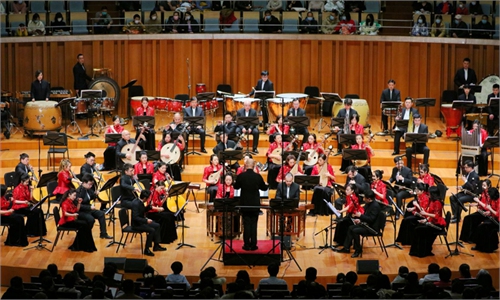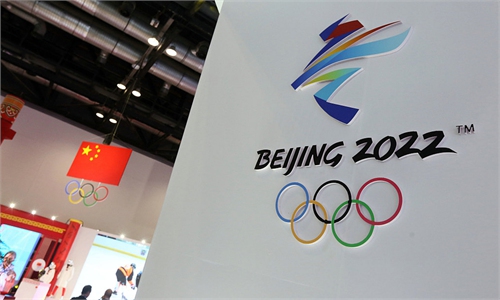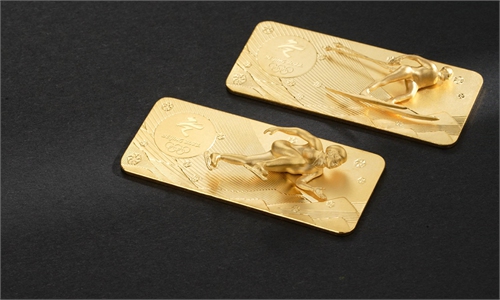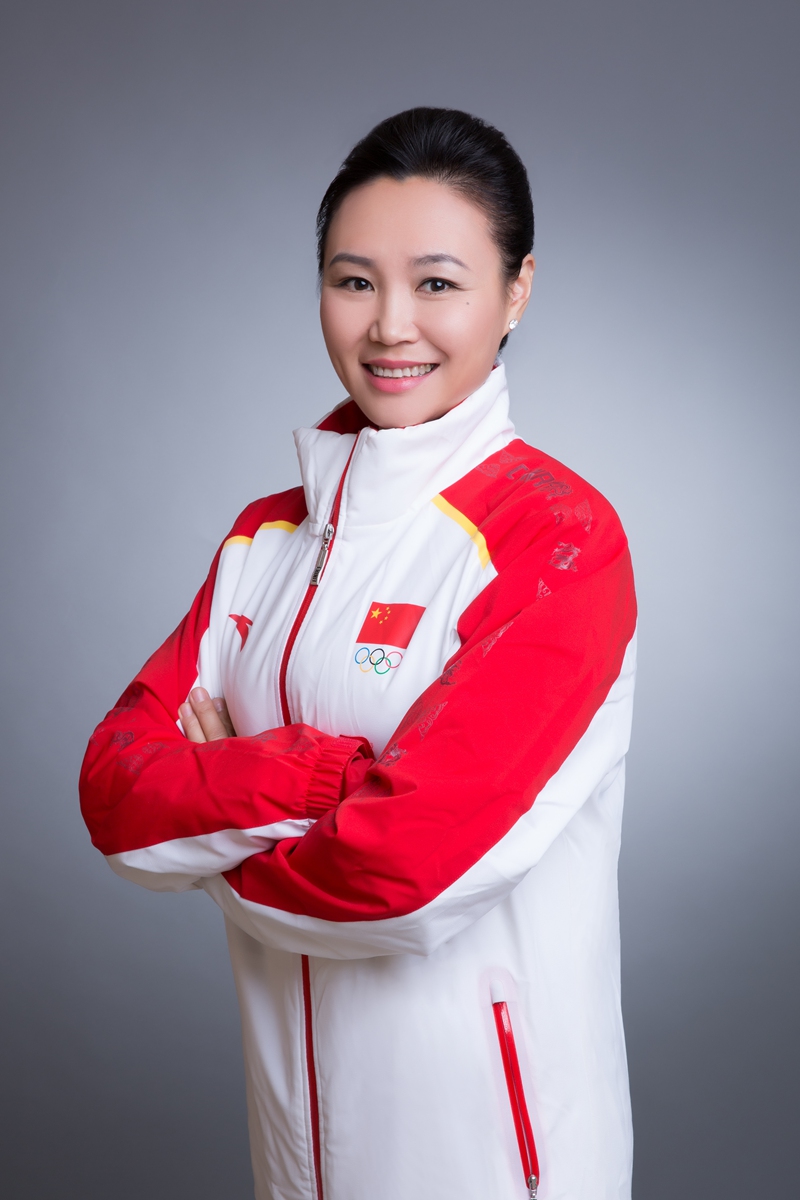
Chen Lu Photo: Courtesy of Chen Lu International Skating Center
After dancing to the traditional Chinese music "The Butterfly Lovers Concerto" on the ice at the Nagano Winter Olympics in 1998, Chen Lu, China's first figure skating world champion, acquired the elegant title "Butterfly on Ice."
The farewell performance brought a bronze Olympic medal and high reputation for Chen, who at the time had to strive for the motherland at the international competition on her own as she was the only female figure skater on the Chinese national team.
Standing on the ice in the National Speed Skating Oval, where some events of the Beijing 2022 Olympic Winter Games will be held, some 24 years later, Chen was stunned by the facilities at the venue.
"We have made adequate preparations for the Beijing 2022 Winter Olympics and have strived for perfection in every event," Chen told the Global Times.
An experienced winter sports athlete who has attended international competitions many times, Chen has played a role with the Beijing Organizing Committee for the 2022 Olympic and Paralympic Winter Games. She helped the committee improve the facility and services for athletes from around the world.
When talking to the Global Times, the world champion was optimistic about the development of winter sports in China, saying she believes that after the 2022 Games, more Chinese people will take part in winter sports, pushing China to grow step by step into a leading winter sports nation.
Ready for the Games
Chen has visited several venues for the Winter Games, discussing the services, such as food and laundry, for athletes. She noted that China is ready to welcome guests from around the world.
Chen said that depending on what sport they compete in, athletes will have different requirements when it comes to nutrition.
For example, figure skating athletes need to keep in shape, so they cannot have much food high in calories. Athletes who have different religious beliefs have their own dietary habits, which should also be paid attention to.
"We had heated discussions many times about how to provide food services," Chen said.
Laundry is another service that Chen cares about a great deal as athletes sweat a lot during practice and competitions and need to change clothes often. "We hope to make each event convenient for every athlete." 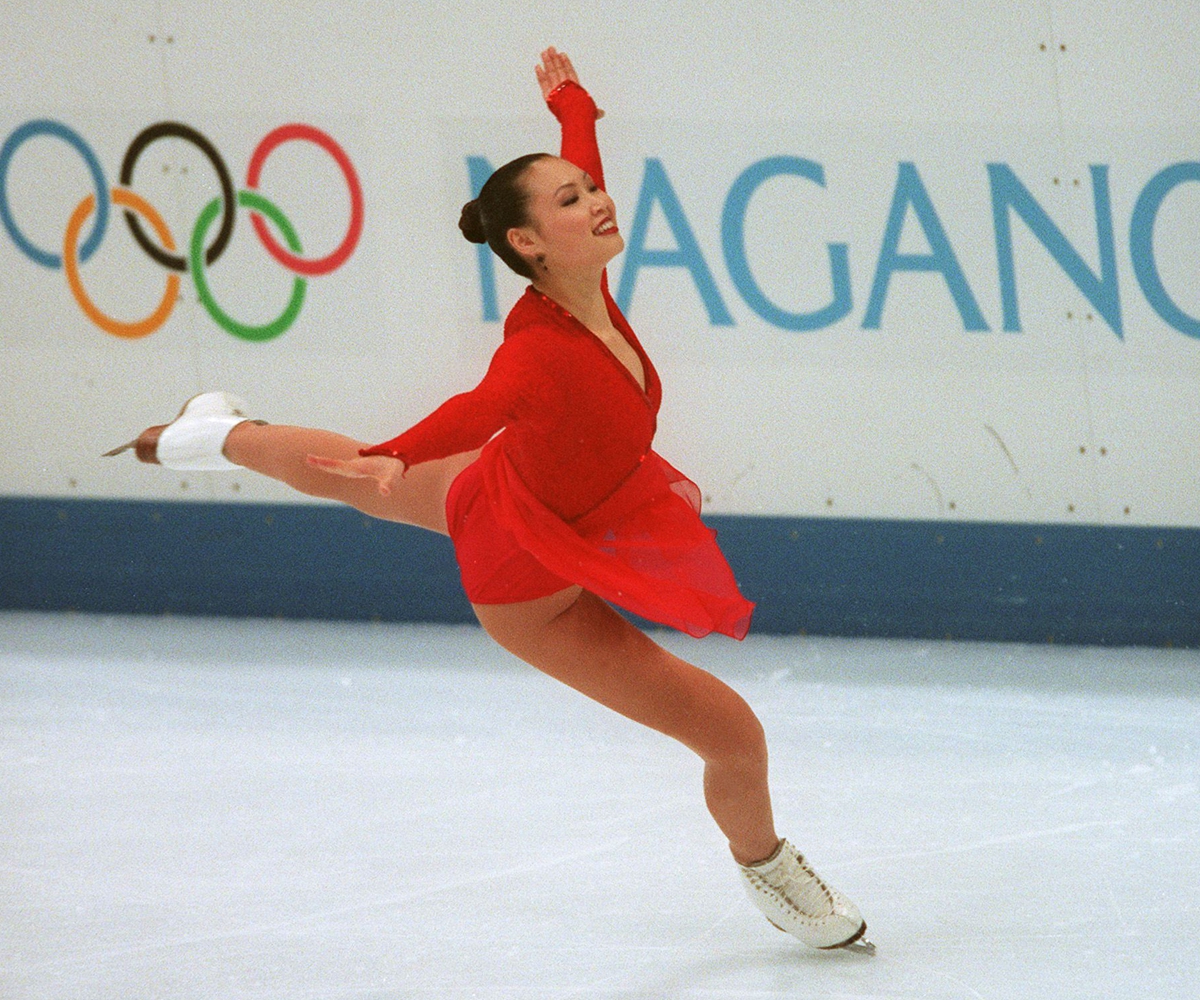
Chen Lu performs her short program during the women's figure skating competition at the Winter Olympics in Nagano, Japan on February 18, 1998. Photo: VCG
Talking about the Chinese figure skaters at the upcoming Games, Chen noted that one of the most urgent problems figure skating in China faces is its pool of talents.
"Our country's pair figure skating has an advantage. The pair of Sui Wenjing and Han Cong have the ability to win gold medals, and this is their second Winter Olympics. I think their strengths are experience and artistic expression," she said.
Chen said that Sui and Han's main competitors will be Russian athletes, who are young and often choose moves with high technical difficulty. However, in terms of experience and understanding each other, they are not as good as Chinese athletes.
"But at this high level, the strength is very close. It is all about who can remain stable under pressure," she said.
China's men's singles player is Jin Boyang, who can handle a first-line level of technical difficulty, but mainly faces mental challenges. Over the past two years, Jin has failed to give full play to his technical capabilities during competitions.
Chen said if Jin can adjust his mental state for the Olympic Winter Games, he will be very competitive.
And for women's singles, Chen noted that Zhu Yi also needs to ensure the proper mental state under pressure as she has not attended many international contests.
Bright future
Chen has been devoted to promoting winter sports in China for dozens of years and so can clearly feel that more Chinese people have realized the benefits of winter sports.
She opened a skating center in Shenzhen, South China's Guangdong Province, at the end of 2004.
"But at that time, people bought tickets just to see and touch real ice instead of skating," Chen said.
After the 2018 Pyeongchang Winter Olympics, Chen found that more people were caring about winter sports.
"People around me have been talking about skating, skiing and learning more about ice sports and the Winter Olympics with me. Like in our International Skating Center, there have been more children coming to learn how to skate."
Parents have learned about the charm of winter sports and seen how these sporting events can improve children's health, just like more common sports such as basketball and badminton.
When she was promoting winter sports at schools, some children used to ask Chen whether the Olympics were only held in the summer, but now such questions have disappeared.
Children nowadays know a lot more about winter sports and have even watched some competitions as they have more interests in these activities.
"The children's participation gives me hope. The call of 'driving 300 million people to participate in ice and snow sports' has started our steps toward becoming a leading winter sports nation. Through the Beijing 2022 Winter Olympics, I believe that China's goal for ice and snow sports will be achieved," Chen said.

